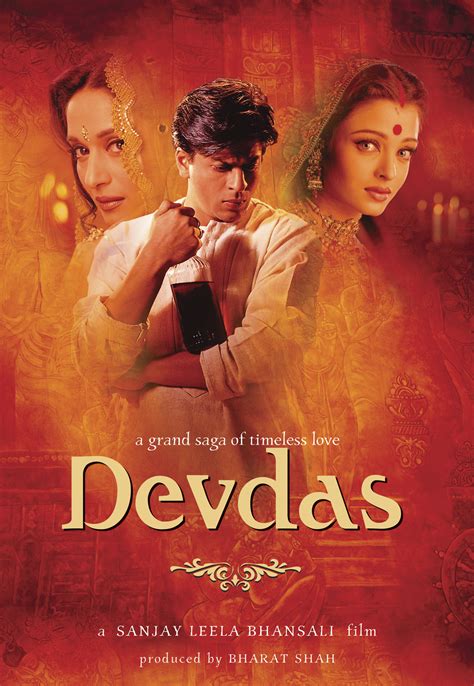Devdas

Description:
Devdas is a 2002 Indian romantic drama film that tells the story of Devdas Mukherjee, a wealthy law graduate who returns to India from London to marry his childhood sweetheart, Paro. However, societal pressures and familial objections lead to heartbreak and tragedy. Devdas spirals into a life of alcoholism and despair, while Paro is forced into an arranged marriage. The film is known for its opulent sets, elaborate costumes, and powerful performances.Keywords:
India, Drama, Romance, Tragedy, Bollywood, PeriodIs Devdas based on a true story?
"Devdas" is based on a 1917 Bengali novel of the same name by Sarat Chandra Chattopadhyay. While the story of Devdas is fictional, it captures the essence of unrequited love and societal constraints in early 20th-century India. The character of Devdas is often seen as a representation of the tragic hero, embodying themes of love, loss, and despair. Although not based on a true story, the emotional depth and cultural context resonate with many, making it a timeless tale.
Why did Srk remove Aishwarya from movies?
Shah Rukh Khan (SRK) did not remove Aishwarya Rai from movies. In fact, both actors have worked together in the film "Devdas" (2002) and have enjoyed significant popularity. However, their professional relationship became strained due to personal conflicts and misunderstandings, particularly regarding Aishwarya's brief relationship with Salman Khan. This led to a perceived rift, but it did not result in SRK actively removing her from the film industry. They have since moved on and collaborated with other actors in their careers.
What happened to Paro after Devdas died?
Was Devdas a hit or flop?
The movie "Devdas," directed by Sanjay Leela Bhansali and released in 2002, was a commercial success and is considered a hit. It received positive reviews for its lavish production design, performances (especially by Shah Rukh Khan, Aishwarya Rai, and Madhuri Dixit), and music. The film was a box office success in India and internationally, earning multiple awards and nominations, and it helped revive interest in classic Indian literature adaptations in cinema. Its cultural impact and visual storytelling are still celebrated today.
Explore More Categories:
Environmentalism Epic Battles Tactical Genius Counterculture Tension Australian Cinema Assassination Aftermath Evil Period Drama Autism Psychological Conflict Consequence Global Dragons Injustice Ethical Dilemmas Legacy Dreamtime Cross Cultural Deep Sea Surgery Unpredictability Unexpected Twists Modernity